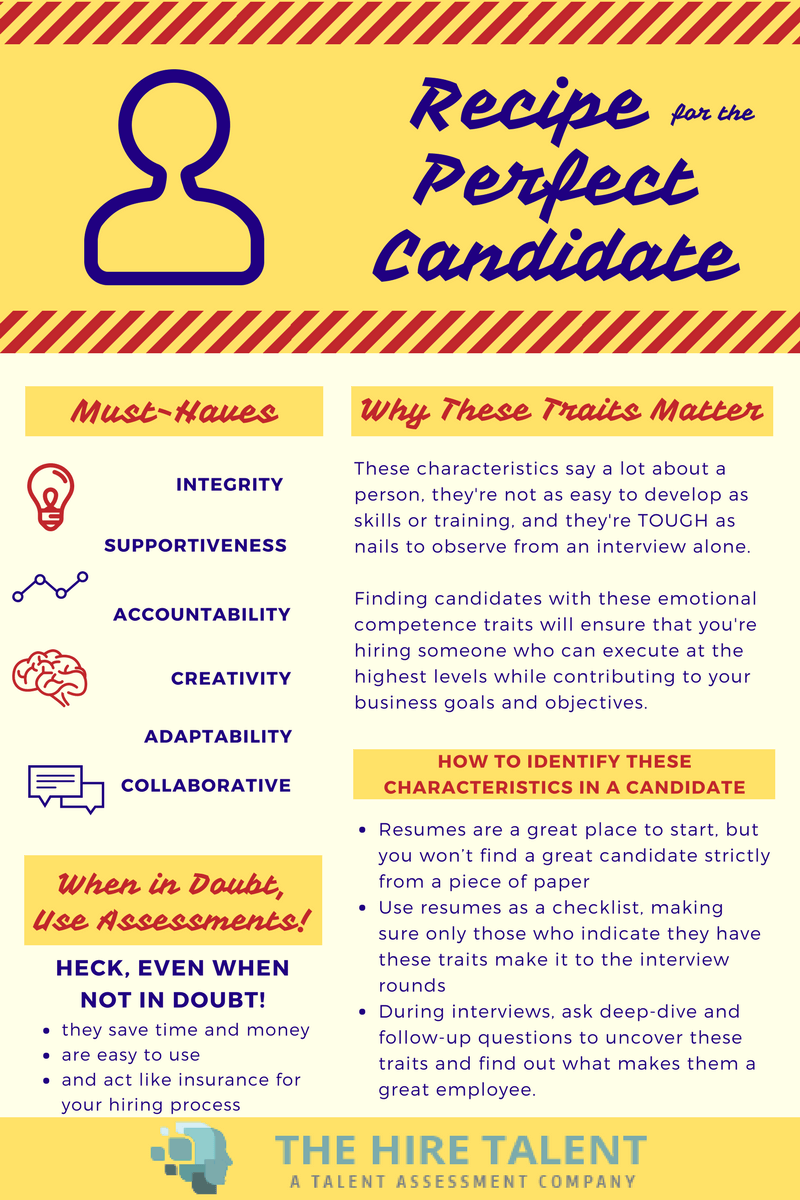Content
Although interviewing candidates seems to be the easiest and best part of a recruiter’s job, things are completely different in reality. Most hiring managers know what they want to hear from a candidate during the interview, and they follow a streamlined line of questioning. However, ultimately, the final decision finds its justification in a blend of “gut feelings,” impressions, personal biases (conscious or unconscious), etc. As we all know, personal charm does not equal job performance. Here is where a candidate scorecard comes in. A standardized method of applicants’ interviewing, candidates’ scorecards reduce systemic bias. Today, we will learn what an interview scorecard is, how it enhances the recruiting process’s efficiency, and how to use it in practice.

What is a Candidate Scorecard?
A candidate scorecard is a tool helping organizations and hiring managers to make the best recruiting decisions. Consider it a sheet or a pre-made form that interviewers fill out for each candidate they meet. This form contains categories – rated on a scale (numerical or Likert) – that can be objective and subjective.
Most interview scorecards contain five columns:
- Information category: role deliverables, experience, personality traits, hard skills, soft skills, work/management style, etc.
- Job title/role: web developer, sales associate, project manager, copywriter, IT support, etc.
- What you are looking for: the interviewers note what they look for as an answer from the candidates;
- Candidates’ answers: the interviewer notes the candidates’ answers related to each information category. For instance, in the column about the experience, the candidate answer can be “3 years.”
- Numerical rating (e.g., a scale from 1 to 5): in this column, the recruiter notes how well the candidate fits the job profile and the answers you seek.
With this system, you will see that a candidate’s scorecard for a senior copywriter differs tremendously from that of a customer support representative. The scores vary greatly across the nature of the job, positions, roles, required experience/hard skills, and so on.
However, if you have three interviewers discussing with three separate candidates for the same job opening, the candidates’ scorecards will be similar. What helps you in your recruiting process to avoid poor hires are the scores obtained by each candidate.
What Is the Purpose of a Candidate Scorecard?
Hiring teams use interview scorecards to standardize candidates’ assessments to diminish bias during the interview process.
Moreover, the use of such a tool saves time, reduces hiring discrimination, and offers organizations the chance to establish hiring goals, strategic KPIs, and a universal vision regarding top talented candidates to recruit and retain. Candidate scorecards sustain talent acquisition practices, employee referral strategies, and employee growth programs inside the organization.
The interview scorecard process requires each interviewer to complete this form/sheet for each candidate. Once the recruiting team compiles the scorecards for all candidates, they compare rankings and identify the strongest applicants to consider in their hiring decision.
Organizational Goals Achieved by Using Candidates’ Scorecards
If you already checked our candidate scorecard demo, you realized the tool could help your organization to achieve all the following goals:
- Establishing and implementing a standardized, coherent, and objective method to assess candidates that offer replicable results no matter who performs the interview;
- The tool is an excellent organizational instrument for CEOs and top HR officers as it helps them envision the qualities they want to bring and nurture in the company;
- Because the tool creates a quantitative standard for candidate assessment, all organizations using it have better access to a uniform interview methodology. In turn, it ensures productive collaboration among the recruiting team’s members and helps the organization make consistent great hires no matter who is at the helm of the HR department.
- By comparing the short-term and long-term results of the hired employees with the used interview scorecards, organizations can measure whether their scorecards are valid predictors of job performance and success.
- Executives can also analyze and measure the performance of their hiring teams. After all, if your HR department is on a winning streak of excellent hires, you know you are on the right track as a CEO.
- On the other hand, if you don’t establish significant correlations between your scorecards, successful hires, job performance, cultural fits, and employee retention, it means you need to reevaluate the instrument itself or perhaps your entire recruiting approach and process. To avoid trials and failures, most companies use ready-made candidates’ scorecards elaborated by professional HR experts; such is the case with our tool you can test for free before making any purchase decision.
The Fundamentals behind Efficient Candidate Scorecards
Making the best hiring decisions based on an interview scorecard starts with a simple premise: your organization must develop a comprehensive candidate profile for each role. An efficient candidate scorecard relies on the following principles, elements, and components:
- Well-defined job-specific competencies you want your candidates to demonstrate.
- Clearly described hard skills and soft skills you want to assess in candidates with the help of standard interview questions and behavioral interview questions.
- An assessment of how well a candidate fits your organizational culture; in this regard, you can focus on interpersonal skills, leadership style, teamwork, initiative, attention to detail, a growth mindset, integrity, and so on. You can get a clear idea of such traits, attitudes, and skills using our complete set of pre-employment assessment tests. However, when you use a candidate scorecard during the interview process, you can obtain clear, comparable rankings between candidates to make your hiring decision process easier and quicker.
- Leaving room for notes, highlights, or elaboration of applicants’ answers to various questions. Most specialists warn that using candidate scorecards dehumanizes the process, determining the interviewer to pay attention more to the form to fill than to the candidates. For this reason, an efficient interview scorecard allows the recruiter to come back to some questions, ask and note supplementary information whenever they feel they need to dig deeper on a certain topic.
- Leaving room for notes on potential areas of concern/red flags/additional information requests.
- A section dedicated to the hiring/not-hiring recommendations with arguments.
Scorecards Help both the Candidates and Organizations
As we said, interview scorecards do not only highlight differences between candidates but also between your hiring team members. You may learn that a certain interviewer is too strict on a particular question/category. Another recruiter may need more support and training in assessing a particular category. All in all, candidate scorecards are crucial for any organization that wants to hire top talent and build sustainable and effective employee retention and growth programs.
But if we standardize the interview process, don’t we miss something?
The Downsides of Interview Scorecards and How to Avoid Them
To answer the above question, yes, we could miss many things if we don’t use the instrument properly. An interview scorecard is there to eliminate bias, discrimination, and candidates’ frustrations. It takes out from the hiring equation issues like “ the HR manager simply didn’t like my outfit” or “I didn’t get the job because the CEO didn’t agree with my values.”
The tool does not (and should not) eliminate the importance of human interaction and rapport building during an interview. Here are some of the cons of using candidate scorecards identified by experts:
- They limit personal engagement, eye contact, and observing the candidates’ non-verbal communication or gestures. Because the recruiters focus so much on filling the forms, they might miss crucial information regarding the candidates’ personalities, communication skills, interpersonal skills, attitudes, humor, etc.
- Scorecards can obstruct the interviewing process. As much as they make interviewing efficient and replicable, they can also be very restrictive. It is the nature of an interview to explore questions, ideas, and topics as they present themselves on the spot. Sticking to the form, the recruiters enable a rigidity that quashes any real opportunity of organic and creative evaluations.
- Creating scorecards is extremely time-consuming. As you saw, you need to define job profiles, establish hiring goals, align the scorecards to your organizational culture, recruiting processes, train the team, eliminate usage errors, and revisit the scorecards regularly to fine-tune them for the best results. Moreover, you have to dedicate time to making correlations between the scorecards’ results with candidates’ tests’ results.
Prevent the Limitations of Scorecards
One of the simplest ways to avoid such drawbacks is to get professionally made candidate scorecards and train your team in using them efficiently. A good form contains more than just questions related to the candidates’ experience, use of technology, or management skills. With such scorecards, you can also evaluate the interview process itself. Did the candidate show various relevant communication skills through the given answers? Did the candidate prove good time management while delivering the answers? These supplementary categories can help your hiring team use the candidate scorecards at their full potential.
Bottom Line
Have you ever tried The Hire Talent Candidate Scorecard? You should sign up for a demo to understand this tool’s power in maximizing your hiring strategies!
If you created an interview scorecard in your organization or tried a couple of templates, let us know what you thought about them! Did you find them useful? Do you have suggestions, tips, or questions for our recruiting community regarding the use of candidate scorecards? We’d love to hear from you!


